Photo Essay: The Homegrown Project Tracks How Streetwear Brands Are Moving Fashion Forward in Nigeria
featuring PITH, Ashluxe, WWYD & more
featuring PITH, Ashluxe, WWYD & more
Nigerian fashion never fails to make a statement. From traditional attire to streetwear, Nigerian brands have consistently produced impressive pieces that have helped establish the country’s reputation as an African style capital over the past decade. And of all the different types of clothing the country produces, streetwear is, undoubtedly, at the heart of Nigeria’s fashion explosion.
As homegrown brands sit at the forefront of fostering a vibrant fashion community across Africa, Nigerian brands have become renowned for their creativity and innovation, boasting celebrated designers such as Mai Atafo, Deola Sagoe, Banke Kuku, Kenneth Ize, Mowalola, and Andrea Iyamah. And with the global spotlight currently being shone on Nigerian music, we are suitably positioned as a leading cultivator of a robust creative community in Africa, with fashion leading the charge. Nigeria’s fashion industry is dynamic, diverse, and constantly evolving, thanks to a rich cultural heritage that serves as a source of inspiration for designers and creatives. Nigerian designers’ entrepreneurial spirit and resilience also contribute to the vibrancy of the fashion industry, and the increasing recognition of Nigerian designers at both domestic and international levels.
Still, it’s community building that lies at the heart of Nigeria’s streetwear brands, effectively setting them up to thrive on the global scene. Brands like Severe Nature, WWYD, Ashluxe, Pith Africa, Legacy, Daltimore, Forever Earth, Casimir Hero and several others exemplify this communal ethos, and the work they’ve done to build communities that encourage individuality and freedom of expression, is quietly shaping the narrative of streetwear fashion in the country.
The evolution of streetwear fashion in Nigeria can be traced back to the inception of Severe Nature. Created by Christopher Afolabi, Tobi Adeleye, and the late Michael Atobalele in 2012 with a vision to push the boundaries of street luxury fashion, they have stayed true to the core values of creativity, authenticity, and self-expression. Severe Nature takes personality, form, and nature to an extreme while blurring the boundaries of streetwear with the constant use of mixed fabrics and experimental clothing to stand out from other similar brands. The homegrown fashion brand has gone on to inspire and lead a plethora of burgeoning fashion brands across the country with a strong foothold across the continent.
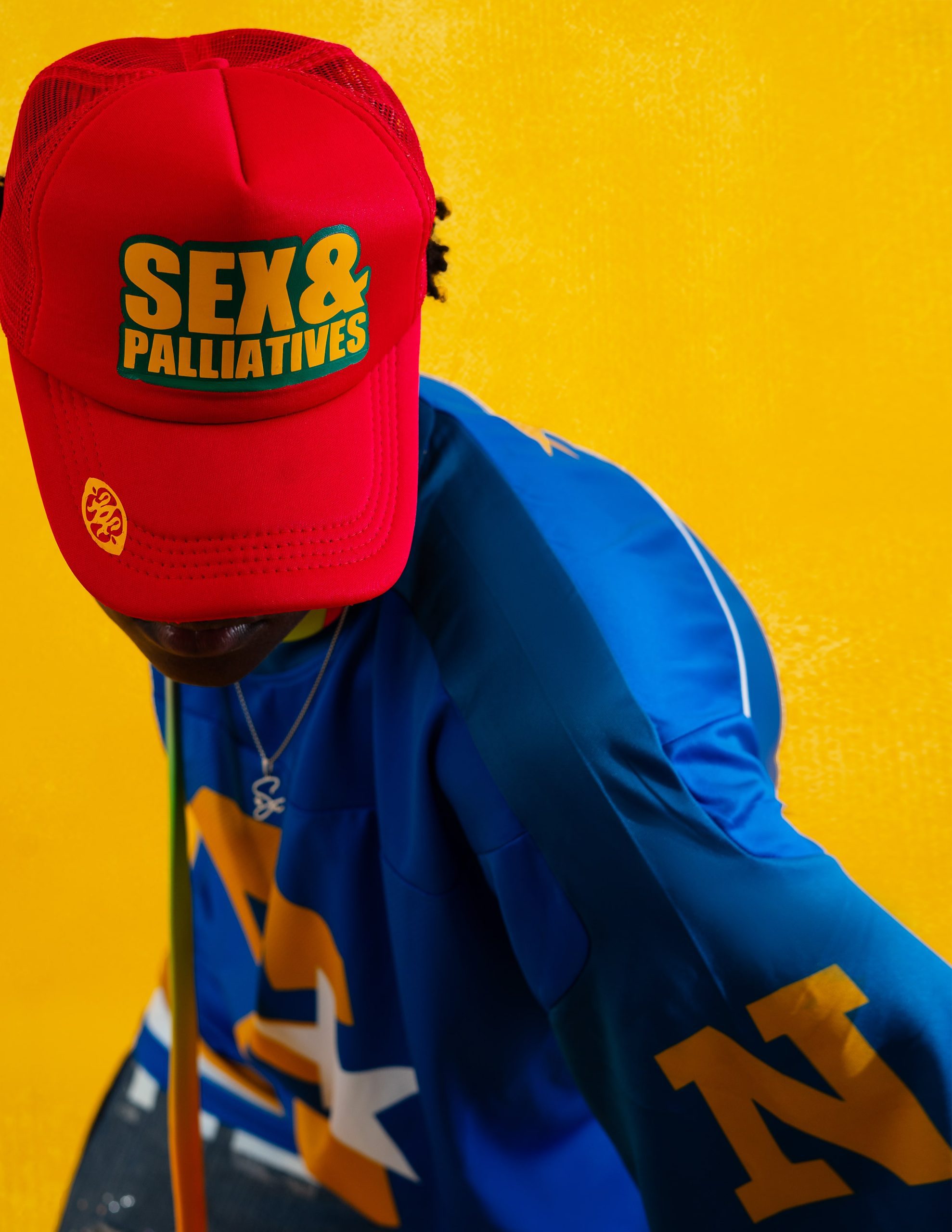
Severe Nature’s success has not come without challenges, though. “One of the significant obstacles has been the lack of infrastructure to support production on the continent,” Afolabi admits. “For a brand that emphasizes quality, we had to come up with creative ways to find sustainable methods of producing our products. The fashion industry’s competitive landscape, both locally and internationally, necessitates constant innovation while maintaining quality.”
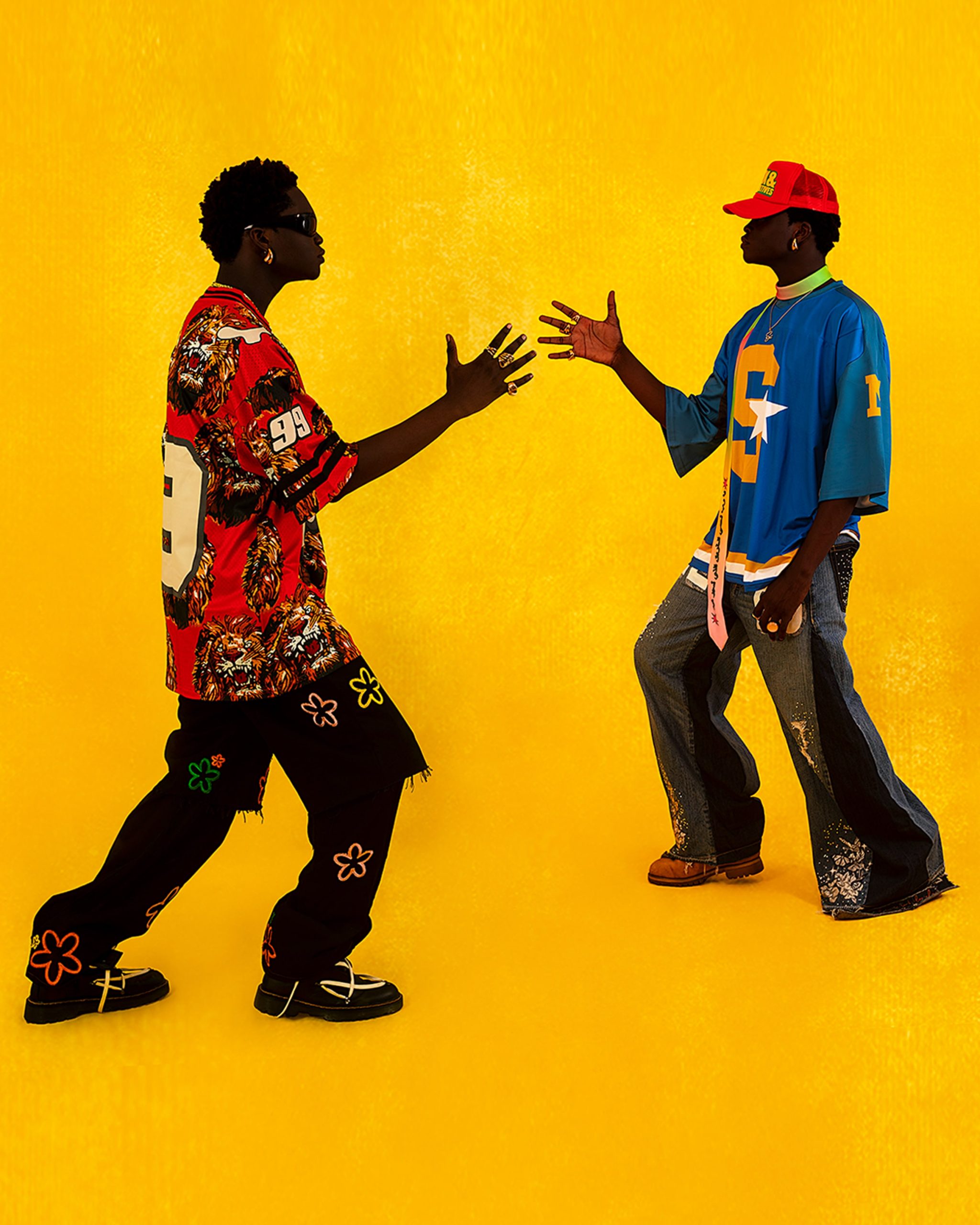
Those issues have not impeded the growth of the industry. Streetwear fashion in Nigeria surged beyond the shores of the continent in a giant leap thanks to the groundbreaking work of Ashluxe. Founded by Creative Director Yinka Ash, the homegrown brand oozes luxury, elegance, and style and has successfully built an engaged community and recorded highlights like a showcase at Paris Fashion Week in 2023. “I am hyper-focused on the quality of clothes,” Yinka Ash admits. “Before the creation of Ashluxe it was difficult to get good quality ready-to-wear menswear in Nigeria. I decided to solve that problem, by creating a fashion brand whose primary focus is an offering of good quality menswear with a streetwear aesthetic.”
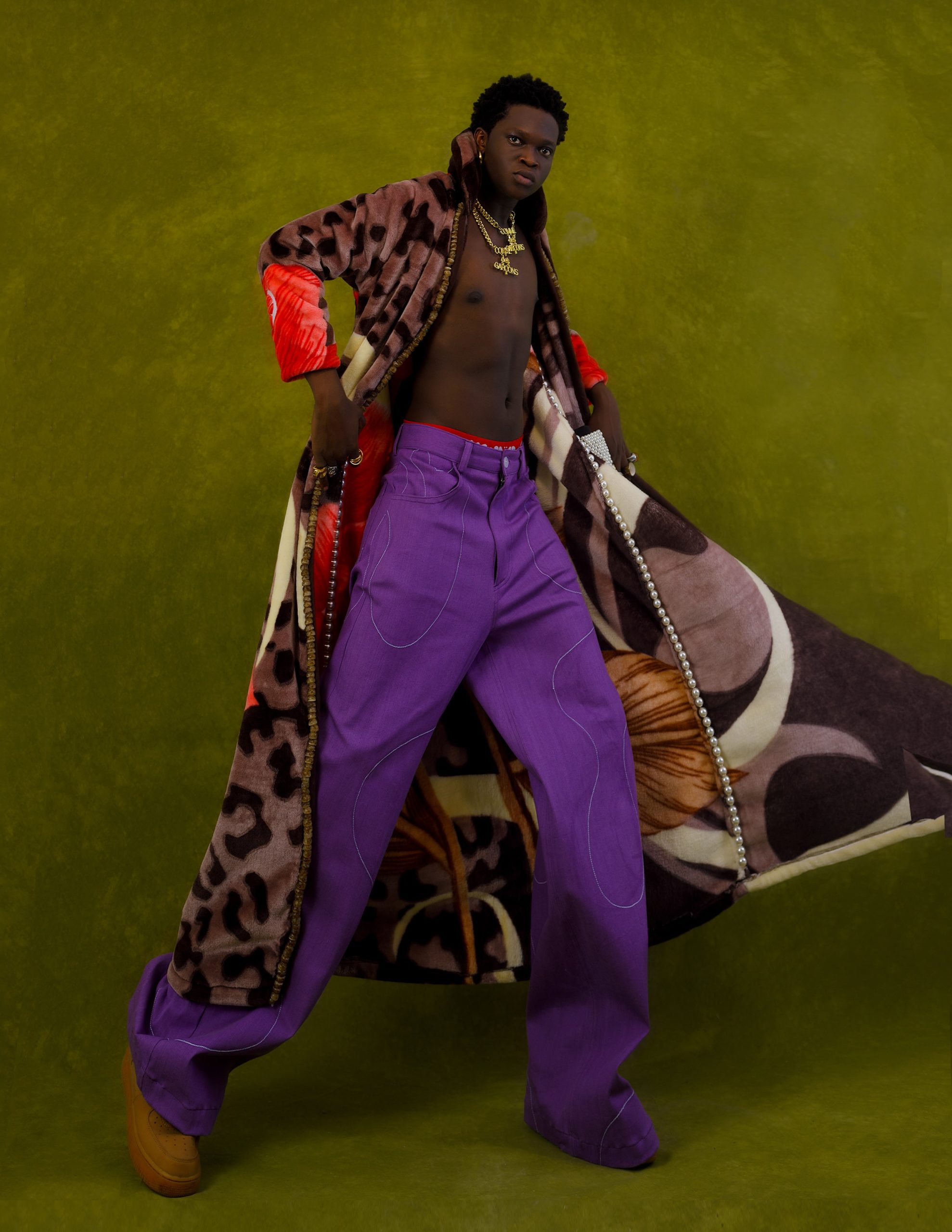
One can also tie the rapidly growing streetwear community in Nigeria to the daring gusto of young Nigerian creatives like Ayanfe Olarinde, founder and team lead of WWYD. Inspired by her ongoing artistic research project that seeks to dismantle toxic masculinity, WWYD, an abbreviation for ‘What Would You Do?’ has emerged as a gender-fluid, community-driven brand that promotes inclusivity and freedom of expression regardless of race, gender, or body type. A haven for free thinkers, nonconformists, and go-getters to express themselves, WWYD promotes a nonjudgmental style that is committed to reshaping the notion that colorful fashion is gendered.
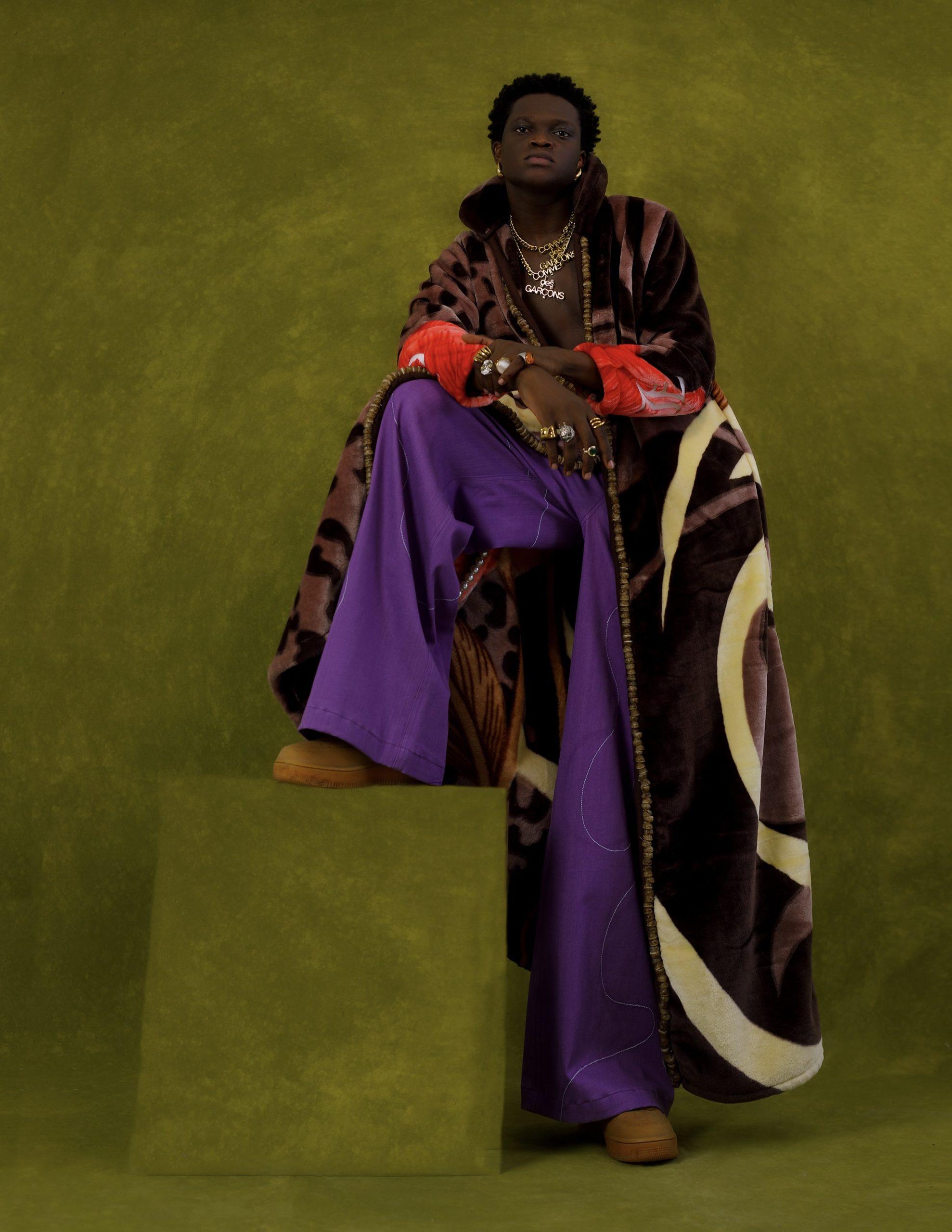
Fashion stylist and art director for the Homegrown Project, a Nigerian fashion archival group, Senami Maugbe applauds the commitment of Nigerian streetwear brands to individual style, community inclusivity, and innovation.“I love the gender fluidity and vibrancy WWYD brings to streetwear fashion,” she says. “When brands exclude the restrictions to colors and patterns traditionally meant for specific genders, it creates the ideal ambiance for individual styles to flourish.”
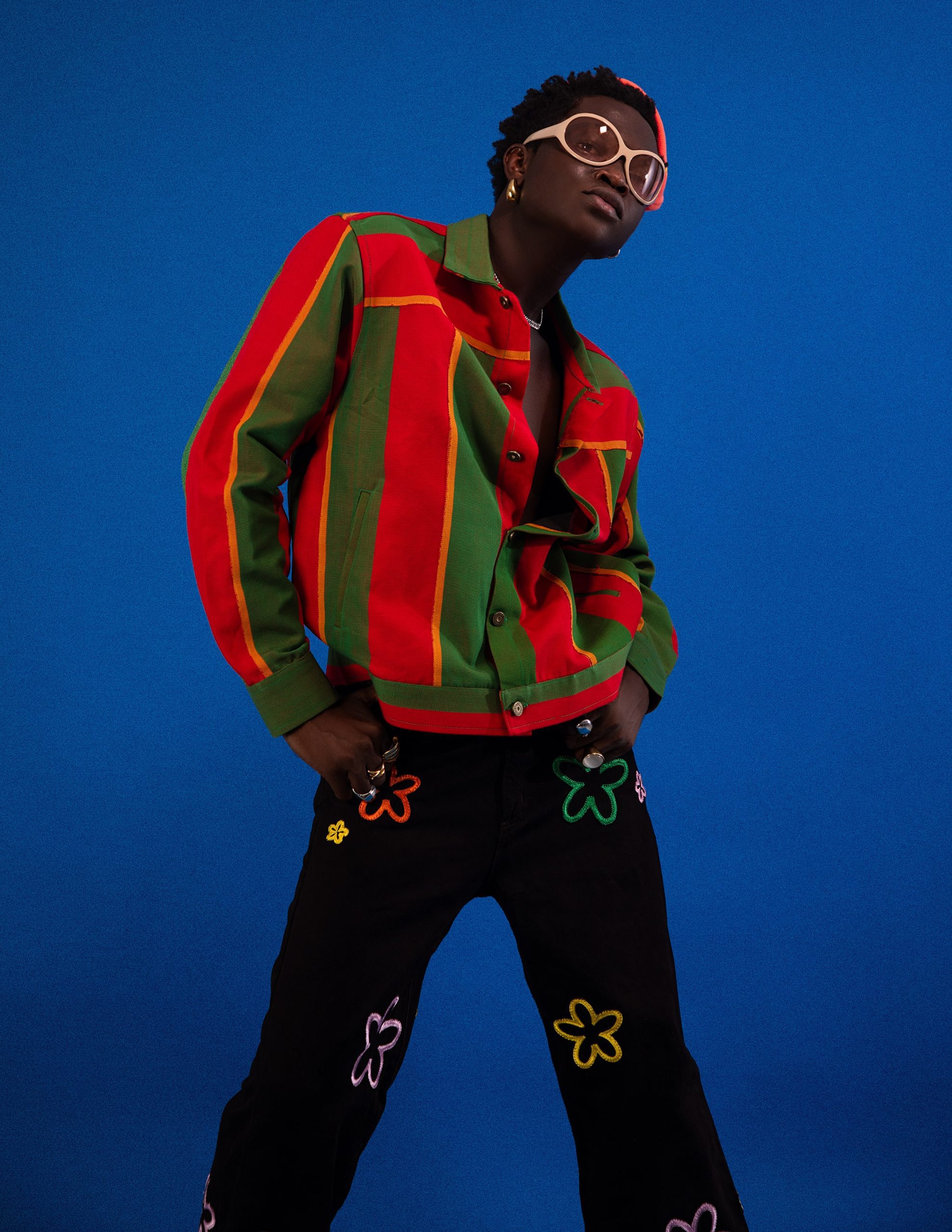
Young Nigerian creatives – in their quest to live authentic, creative, and expressive lives amidst the restrictions caused by the economy and absence of infrastructure that enables creatives to flourish – are constantly pushing boundaries through alternative, innovative practices; fashion sustainability efforts; and inclusive, community-led events. Notably, the Ireti Zacheus-owned platform, Street Souk, continues to create an atmosphere for homegrown streetwear and fashion brands to network, collaborate, and exchange knowledge; bringing together designers, retailers, influencers, and consumers, fostering collaboration over competition.
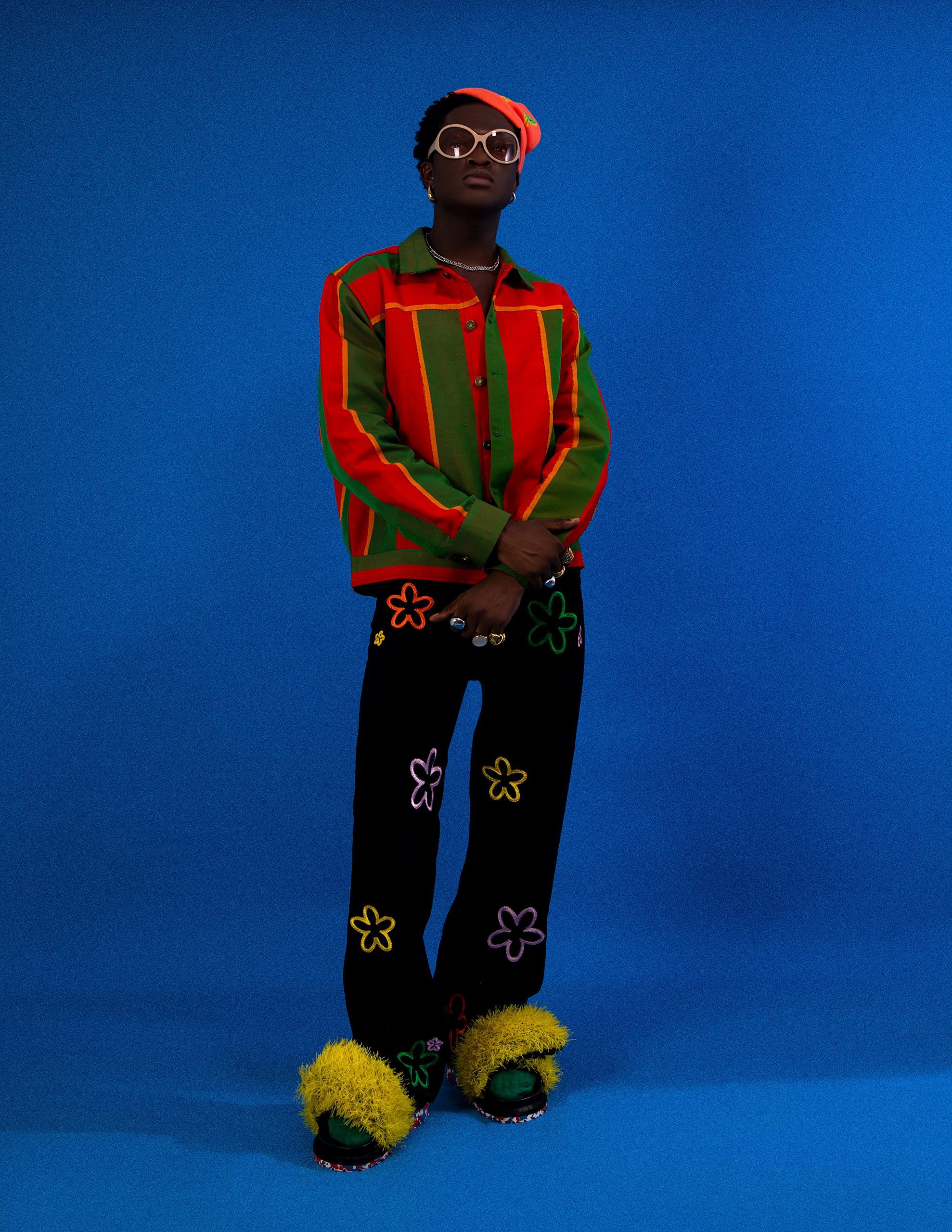
Nigerian street fashion brands also host a series of events and activations throughout the year that actively engage their communities. These events create opportunities for brand exposure and market expansion, promoting inclusivity and showcasing the diversity within the Nigerian fashion community. They display a wide range of styles and aesthetics, which is great for the industry’s growth. “Every brand included in this project shares a common trait: they cultivate a sense of community,” Ayorinde Olabamiji, model and fashion curator of the Homegrown Project, says. “Through pop-ups, parties, and various other events, they create an environment where individuals feel part of something larger. This sense of belonging is crucial for advancing streetwear culture.”
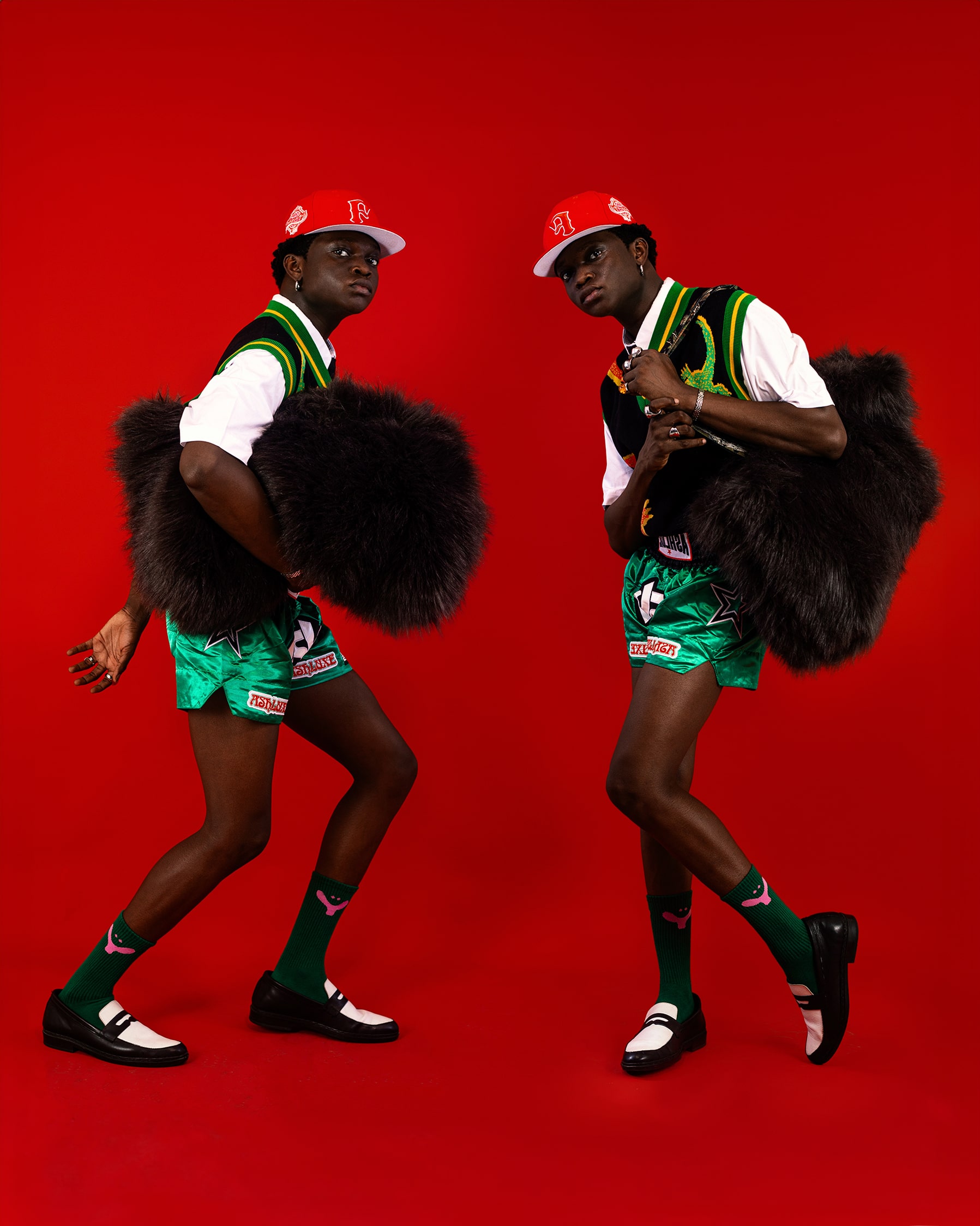
Additionally, innovative tech-based platforms such as Garmspot.com offer e-commerce solutions for indigenous brands seeking retail channels to help them reach wider audiences in Africa and beyond. By fostering meaningful interactions and partnerships, these channels help to strengthen the fabric of the Nigerian fashion industry and drive it forward.
As African kids who often looked to Western cultures as a yardstick for acceptance, the founders of PITH Africa felt the gap in the expressionism of young Black people in their unique self and style. This moved Cosmas Ojemen, Nez Anazodo, and Adedayo Laketu, who are storytellers at heart, to use fashion as a tool not only for expression but for documenting history, building communities, and creating a new paradigm for young people to feel free in self-understanding and their skin. The satisfaction that comes from being dressed in ourselves and feeling part of our growing pop culture is unmatched, “We’ve always been obsessed with Virgil Abloh for his design principles and ideas,” Ojemen says. “He really helped us defy certain boundaries that the global fashion industry has placed on “Black people.” He made us believe that we can create something on a taste level that matches the global state of fashion but from the view of a Black African man.”
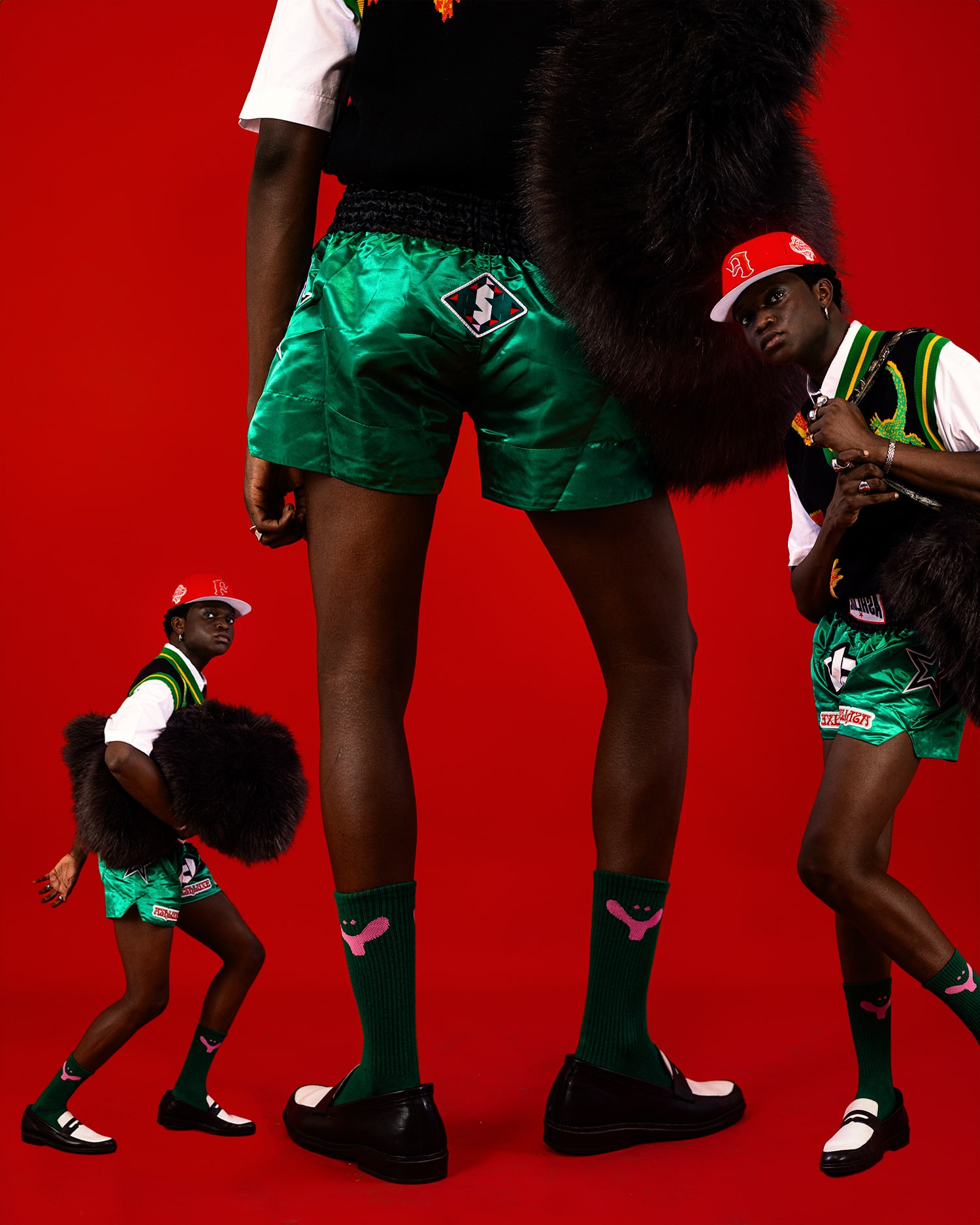
Homegrown brands in Nigeria largely draw a unifying motivation from Abloh, the late and legendary fashion designer. His ideas, drive, and love for community have inspired brands like Forever Earth, which has taken community building up a notch with the introduction of FET radio, which encompasses parties, podcasts, and concerts.
For Casimir Hero, Abloh’s background and relentless efforts to break barriers as a fashionable Black man were all that was needed to fuel his vision to launch his own brand, which saw him morph hand-painted denim into bespoke beanies, biker jackets, signature tees, and lots more.
The beauty of homegrown brands goes beyond clothing. With, Legacy, founder and creative director Adesuwa is exploring Nigerian and Thai cultures to craft unique jewelry, bags, and shoes that promote love, self-confidence, and unity among cultures. She seeks to bridge the gap between distant cultures through her pieces, which have been worn by the likes of Asake, Victony, and BNXN, among other Nigerian musicians.
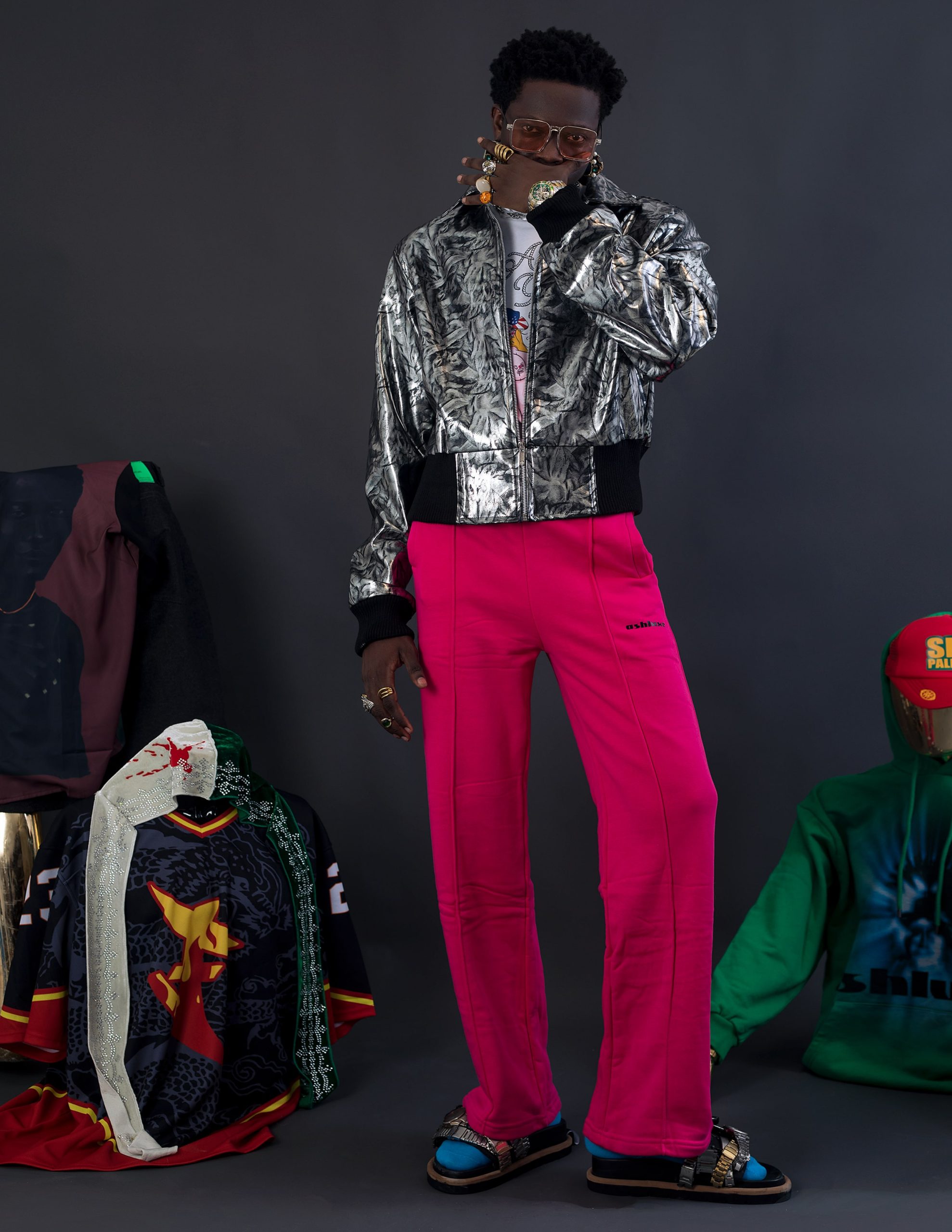
Nigerian homegrown brands collectively share a desire to express themselves through fashion and style, and it is no different for the Daltimore Brand. Owned by David Daltimore, his drive is fueled by merging cultural ideas with modern styles to create unique streetwear fashion pieces.
The Nigerian streetwear community has seen several cross-community collaborations through pop-ups, raves, and fusions of art and style. It is also exciting to see brands emerging with a greater emphasis on sustainability and ethical practices within the Nigerian streetwear community, as designers and consumers alike are becoming more aware of their environmental impact, leading to a more eco-friendly fashion culture throughout the country.
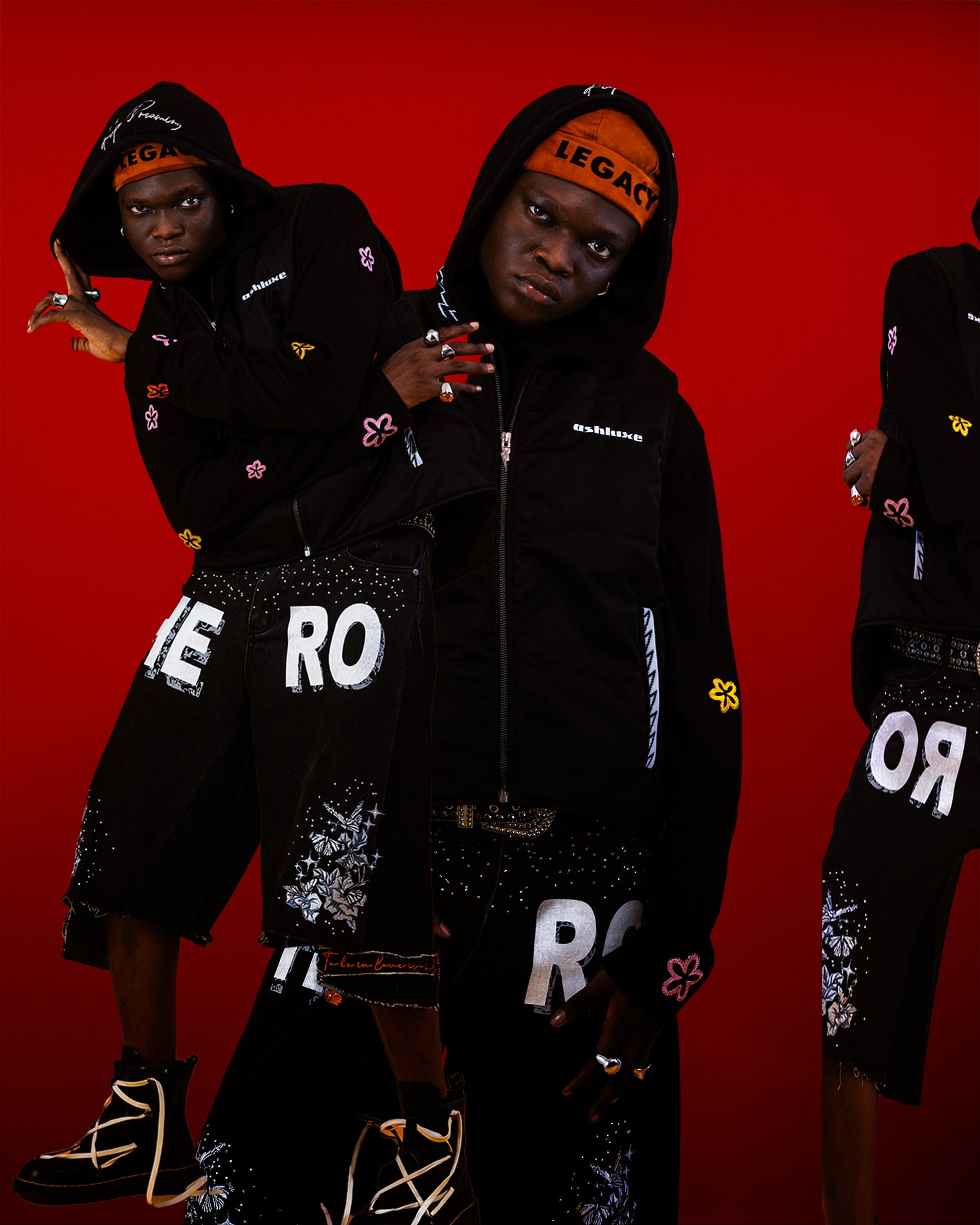
Despite the glaring challenges of sourcing quality materials at affordable prices, maintaining consistent production standards, bureaucratic red tape, and a lack of government support for creative industries, Nigerian designers and entrepreneurs are optimistic that the Nigerian streetwear community will continue to evolve over the next few years. “We are committed to sustainability and ethical practices, seeking to minimize our environmental footprint and make a positive impact on the communities we serve,” Afolabi says. “Through innovation, collaboration, and a relentless pursuit of excellence, we aspire to elevate Severe Nature to new heights of success and influence in the global fashion landscape.”
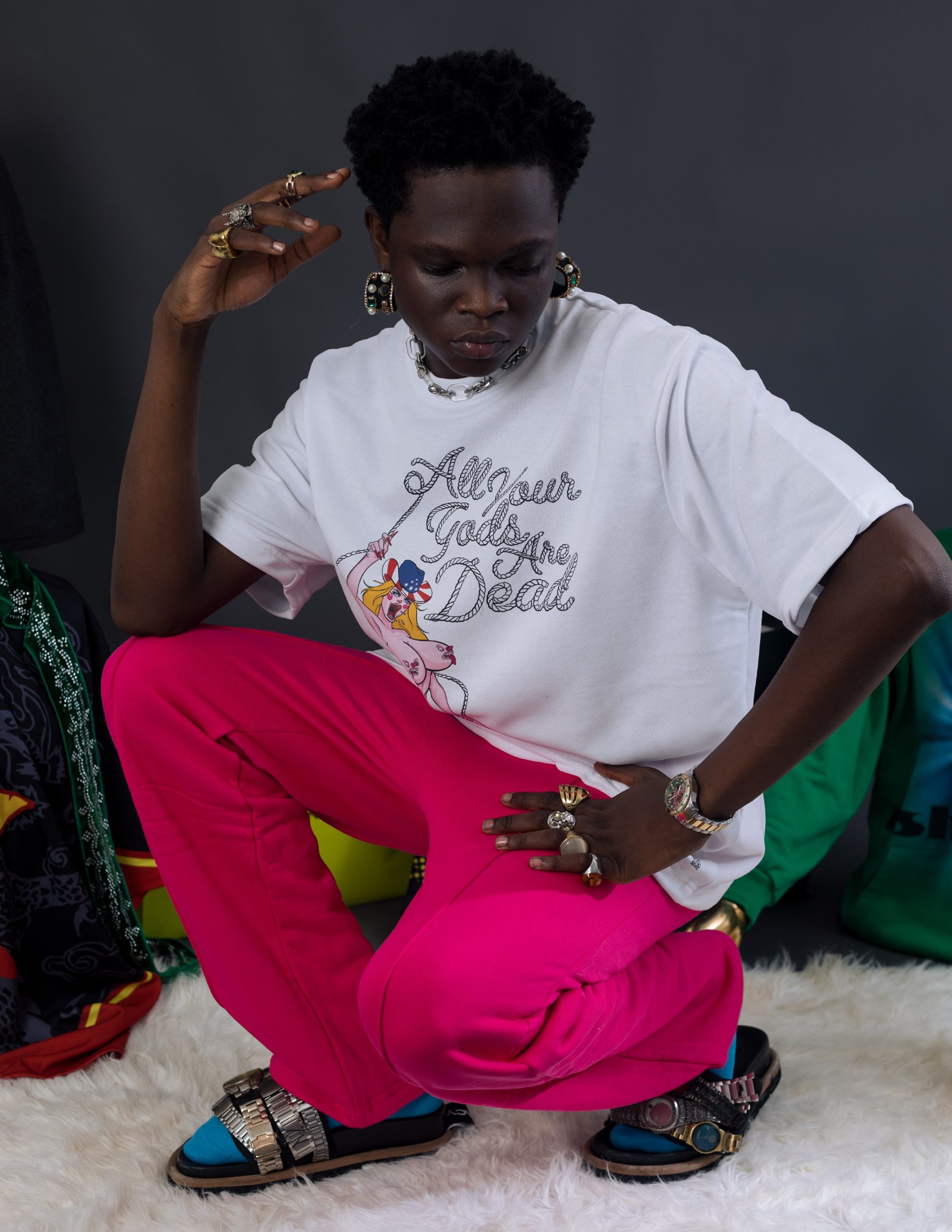
Credits:
Photography: Laura Osare and Daniel Uwaga
Model and curator: Ayorinde Olabamiji
Art direction and styling: Senami Maugbe
Wardrobe: Ashluxe, WWYD, PITH, Casimir Hero, Severe Nature, Legacy, Forever Earth, and Daltimore

